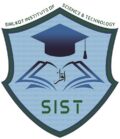School of Nursing
School of Nursing
Nursing is a healthcare profession focused on the care of individuals, families, and communities to promote and maintain health, prevent illness, and provide support during times of illness or injury.

Admission criteria:
FSc (Pre-Medical) with 50% marks minimum
Scope
Direct Patient Care: Nurses are involved in providing direct care to patients in various healthcare setfings such as hospitals, clinics, nursing homes, and home health. They assess patients’ health, administer medications, perform treatments, monitor vital signs, and assist with activities of daily living.
Health Promotion and Education: Nurses play a crucial role in promoting health and preventing diseases. They educate patients and communities about healthy lifestyles, disease prevention strategies, and the management of chronic conditions. Nurses may conduct health screenings, offer immunizations, and provide guidance on proper nutrition, exercise, and hygiene.
Care Coordination: Nurses serve as advocates and coordinators of care, collaborating with other healthcare professionals to ensure comprehensive and effective treatment. They communicate with physicians, therapists, pharmacists, and social workers fo develop and implement care plans that meet patients’ individual needs.
Medication Management: Nurses are responsible for administering medications fo patients, ensuring the correct dosage, and monitoring for any adverse reactions. They educate patients about medication use, potential side effects, and promote medication adherence.
Patient and Family Support: Nurses provide emotional support to patients and their families during challenging fimes. They listen to patients’ concerns, address their anxieties, and provide comfort.
Nurses also involve families in care decisions and offer guidance on how fo care for their loved ones at home.
Health Assessment and Diagnosis: Nurses perform physical assessments, collect patient data, and analyze symptoms fo help identity health problems. They may use standardized nursing diagnoses to categorize and prioritize patient needs, which then guides the development of nursing interventions. Research and Evidence-Based Practice: Nurses are encouraged to participate in research activities and stay updated with evidence-based practices. They apply the latest research findings and best practices for their clinical decision-making, contributing for the advancement of nursing knowledge and improving patient outcomes.
Leadership and Management: Nurses often assume leadership and management roles, overseeing nursing teams, delegating tasks, and ensuring the efficient functioning of healthcare units.
